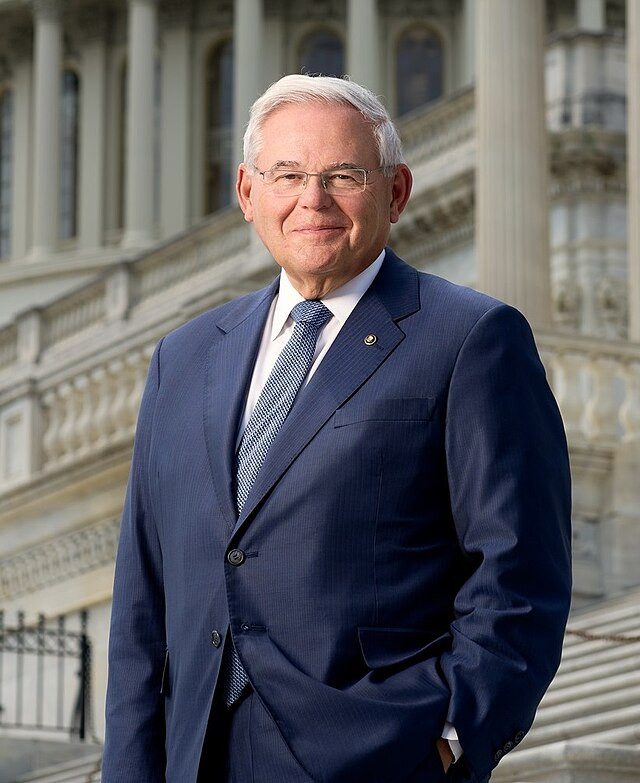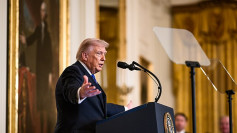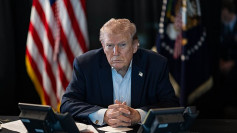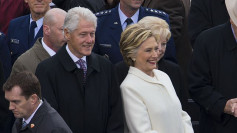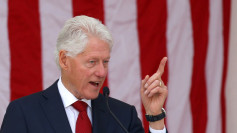In a significant blow to the prosecution's case against Senator Bob Menendez, a federal judge has ruled that jurors cannot see evidence prosecutors have deemed "critical" to proving allegations that the New Jersey Democrat accepted bribes to facilitate American military aid to Egypt. The decision by U.S. District Court Judge Sidney Stein complicates the government's efforts to substantiate its claims against the senator.
Judge Stein's ruling, delivered on Friday, cited the Constitution's "speech or debate" clause, which provides a robust form of immunity to members of Congress regarding their official duties. This clause, as interpreted by the Supreme Court, prevents prosecutors from introducing evidence related to legislative acts, thereby shielding Menendez from some of the most damaging evidence prosecutors intended to present.
The evidence in question included a series of text messages and phone records from 2019, suggesting that Menendez reassured his alleged bribers that he was not obstructing military aid to Egypt, and a 2022 text from Menendez's wife implying he needed to approve military sales to Egypt. Prosecutors intended to use these messages to argue that Menendez was signaling the continuation of bribes. However, Stein ruled these pieces of evidence inadmissible, referencing a 1979 Supreme Court decision involving another New Jersey Democrat, Rep. Henry Helstoski, who was similarly protected under the speech or debate clause.
"The prior holds on foreign military assistance and prior sign-offs are precluded from coming in as evidence," Stein stated, emphasizing the protection the Constitution affords to legislative acts. This ruling forces prosecutors to adjust their strategy significantly, as they can discuss alleged promises made in exchange for bribes but not the legislative acts themselves.
The U.S. Attorney's Office for the Southern District of New York, which is leading the prosecution, declined to comment on the ruling. Despite this setback, other allegations against Menendez, unrelated to legislative acts, remain unaffected by the judge's decision.
Experts in constitutional law have long acknowledged the complexities introduced by the speech or debate clause. Its purpose is to prevent the Executive Branch from intimidating or coercing Congress members through prosecution, thus maintaining a separation of powers as envisioned by the framers of the Constitution. This dynamic has frustrated numerous corruption prosecutions of lawmakers over the years.
The Menendez trial has encountered additional disruptions. On Tuesday, the proceedings were halted for a week after jurors were trapped in an elevator, compounding the difficulties faced by the court. The incident occurred following flooding in the jurors' assembly room, necessitating their relocation. Judge Stein humorously advised the jurors, "Don't all get into one elevator," as they departed for the day.
Prosecutors have painstakingly built their case against Menendez, 70, along with his co-defendants, two New Jersey businessmen. The government alleges the senator received bribes in the form of gold bars, cash, and a luxury car in exchange for using his influence to benefit Egyptian officials and facilitate a meat certification monopoly for one of the co-defendants.
Among the witnesses was Joshua Paul, a former State Department official, who testified about the extensive influence the Senate Foreign Relations Committee, chaired by Menendez, wields over the State Department. This includes leadership control, operational directives, and ambassadorial confirmations. His testimony aimed to highlight the significant power Menendez allegedly misused for personal gain.
Following his arrest, Menendez stepped down from his position as chairman of the Foreign Relations Committee, though he has resisted calls to resign from the Senate. The charges against him are extensive, including bribery, extortion, fraud, obstruction of justice, and acting as a foreign agent for Egypt.
